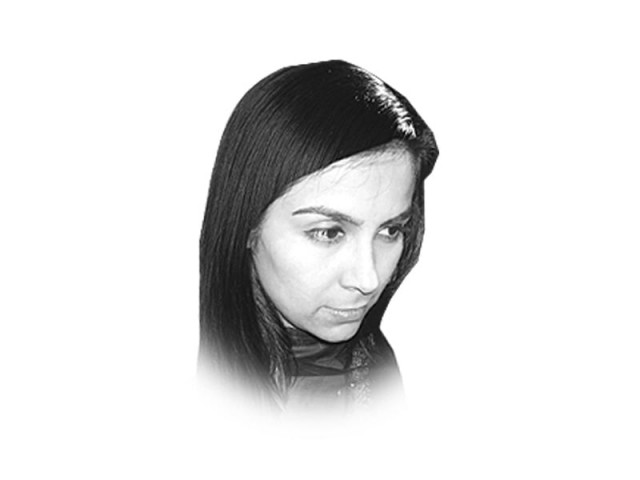Activism in isolation
A non-receptive state has raised standards of responsiveness to an extremely high level for particular cases.

The writer works for the promotion of labour rights, democracy and political empowerment. She is associated with the Pakistan Institute of Labour Education and Research
However, Shahzeb’s case also signifies the dilemma of activism in Pakistan. The extreme polarisation marking state-society relations in the country also divides social relations among citizens and communities. Lack of organisation/association as a part of work or social culture has not only deepened the state of isolation among citizens, it has divided people on the fundamental premise of activism on a range of issues. Public pressure has now become a contested item and its application is questioned. For instance, those supporting Shahzeb’s cause are asked why they are mum about other murders in the city. Those raising their voice against drone attacks are reminded of their ‘silence’ on terrorism.
The blurry line between issues characterising everyday Pakistan including extremism, aggression against women, lawlessness, land grabbing, non-state and state-backed violence, lack of access to basic services, and absence of security and protection for citizens all have social, political and economic inequity at heart. And when these issues receive limited state attention because public pressure is not forthcoming, the role, choices and priorities of activists are questioned strongly.
If we examine the success of activism in Shahzeb’s case, it is evident that his family had strong community support for their cause. A group of alert, energetic, articulate, assertive, socially mobile and connected citizens, outraged at the gruesome murder, came together and mobilised the media effectively to move the state to take action through a high-on-alert judiciary.
However, this is where the division lies. This kind of public pressure may not be visible in other cases that are as or more macabre. This is because the affectees are not equipped with the tools and support base to influence an action from the state. It is also because the society remains too deeply alienated, socially and physically, to adopt or lend support to a given cause. In recent past, many important protests have taken place. The lengths protestors go to draw state attention is indeed extreme. Months-long sittings outside press clubs in major cities, blocking roads and national highways causing traffic jams, and resorting to self-immolation are a few desperate measures. Have all these protests been greeted by the same level of state attention? One is afraid not.
We are getting to a point where a non-receptive state has raised the standards of responsiveness to an extremely high level for particular cases. Public pressure along with massive media attention, judicial activism, sadly the level of gruesomeness of the cause, and the speed with which all these forces come together count as criteria. This is a dangerous trend as this translates into denial of justice to a large majority that cannot mobilise the requisite resources. It is also giving rise to event-based activism that has a short shelf life. It is, of course, impossible and unfair to expect all activists to lend their energies to every cause with the same vigour but, in a divided society, and in the face of an inactive state, selective public pressure may only add to public discontent where justice received by one community is seen with resentment by the other.
Published in The Express Tribune, January 14th, 2013.














COMMENTS
Comments are moderated and generally will be posted if they are on-topic and not abusive.
For more information, please see our Comments FAQ